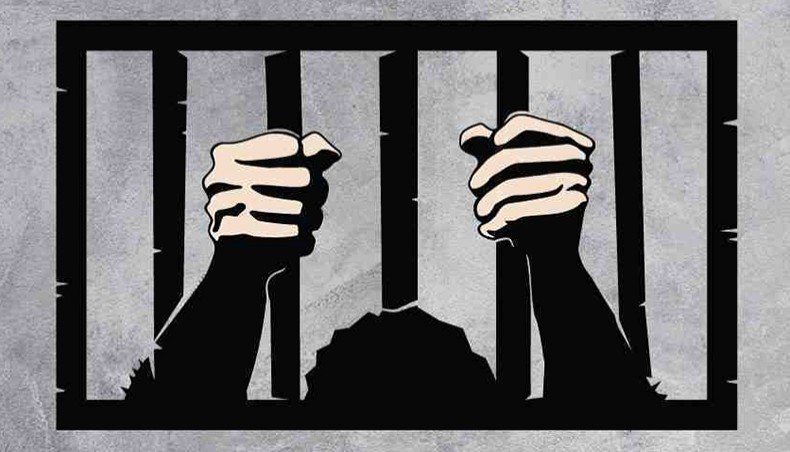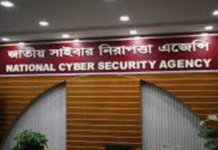 Around 100 people died in jail custody this year, including several activists of the main opposition Bangladesh Nationalist Party in recent weeks, right groups, the party and the victims’ family members said.
Around 100 people died in jail custody this year, including several activists of the main opposition Bangladesh Nationalist Party in recent weeks, right groups, the party and the victims’ family members said.
According to rights group Ain o Salish Kendra, 93 inmates died in jail custody between January and November – the highest in recent years.
Newspaper reports showed the death of five others in December, mostly BNP leaders and activists, amid ongoing crackdown against the opposition ahead of January 7 general election.
ASK reported the death of 65 people in jail custody in 2022.
The rights group said that 81 people died in jail custody in 2021, 75 in 2020, 58 in 2019, 74 in 2018, 53 in 2017, 78 in 2016, and 69 in 2015.
Most of the prisoners, who died recently, are aged between 40 and 60 years old.
As of December 9, the country’s 68 prisons were accommodating 84,851 inmates, compared to the capacity of 42,866 prisoners.
The BNP has alleged that police have arrested over 23,649 leaders and activists since the party’s thwarted grand rally in Dhaka on October 28.
Families of the BNP people who died in jail custody recently said that the victims had no major health issues before being sent to prison and alleged that they were tortured in custody after their arrests.
ASK executive director Faruq Faisel told New Age that the deaths of so many prisoners could also be the result of negligence.
‘The prisons in Bangladesh are filled with corruption, and such deaths could be the result of the negligence of prison authorities and overcrowded jails,’ he said.
BNP has been constantly alleging that inmates belonging to the opposition party were being denied regular facilities in prisons and that jail officials were torturing them in multiple ways.
‘The current inspector general [prisons] has verbally ordered all the prisons in the country to deny all the inmates of the BNP the usual facilities. They are not even allowed to come out of their cells,’ BNP senior secretary general Ruhul Kabir Rizvi said at a virtual press conference on Saturday.
He said that the relatives of inmates were not allowed to visit the BNP people, give them required clothes, or even talk on mobile phones.
In the latest incident, a BNP leader died at Rajshahi Medical College Hospital on December 7, nine days after he was admitted to the hospital in jail custody.
The deceased Abul Kalam Azad, alias Sohel Rana, The deceased Abul Kalam Azad, alias Sohel Rana, 47, was joint secretary of the Hatiandaha union BNP at Singra in Natore.
Sohel’s brother Shamim Reza told New Age that his brother had no major physical complexities before his arrest in mid-November.
Police sent Sohel to jail after his arrest in a violence-related case on November 18. The court granted his bail on November 30.
‘After the bail order, I went to Natore jail and found that my brother was shifted to Rajshahi Medical College Hospital since he was critically ill, although he had no major health issues before the arrest,’ said Shamim.
Earlier on December 1, another BNP leader died at Gazipur’s Kashimpur Central Jail.
Asaduzzaman Hira, 45, was the secretary of BNP’s ward no. 6 unit at Kaoraid union in Sripur, Gazipur.
Kashimpur Jail-2 senior jail superintendent Amirul Islam said that Asaduzzaman was arrested in a violence-related case.
He complained of chest pain in jail and was rushed to Shaheed Tajuddin Ahmad Medical College Hospital, where doctors declared him dead.
Asaduzzaman’s cousin, Alam Khan, also a member of ward no. 6 of the Kaoraid union, said that Asaduzzaman was arrested on October 28 on his way to Dhaka from Gazipur to attend the BNP’s grand rally.
Alam, a local-level leader of the ruling Awami League, told New Age that Asaduzzaman was known as an amicable.
‘It was the first time Asaduzzaman was arrested. He had no major health issues before his arrest. We were informed by the jail authorities that he died of cardiac arrest,’ said Alam.
Three days before the death of Asaduzzaman, another BNP activist, Golapur Rahman, 63, died in Kashimpur prison.
Golap, a BNP activist from Chattogram, had been in prison since his arrest on October 28 on his way to Dhaka to attend the party rally.
Another BNP activist, Imtiaz Hasan Bulbul, 55, from Dhaka’s Wari area, died at Shaheed Suhrawardy Medical College Hospital in jail custody on November 30, a month after his arrest in a violence-related case.
BNP executive committee member Ishraque Hossain told New Age that Imtiaz was tortured by Wari police after his arrest on October 24.
His family members were never allowed to see him in jail, and even the police did not hand over the body to the victim’s family; rather, Imtiaz was buried under police protection.
Wari police station officer-in-charge Mustazizur Rahman, who recently got transferred, said that they had arrested Imtiaz in a violence case in October. The police officer denied the allegation of custodial torture.
According to ASK data, between January and November this year, 53 inmates died in the trial stage and 40 died as convicts. Of the deaths, the highest 63 were in prisons in Dhaka division.
ASK executive Faruq said that the increasing number of deaths in jail custody implied a culture of injustice in the country and showed the law and order situation was beyond control.
He said that due to overcrowded and crammed jails, proper medical and other facilities were not provided to inmates.
People who are being arrested on political grounds face torture from law enforcement agencies during their detention and suffer in jail without proper medical treatment, said Faruq.
New Age tried to reach the inspector general of prisons, Brigadier General ASM Anisul Haque, for his comment.
He hung up after the reporter introduced himself as a New Age correspondent and did not respond to further calls.
Asked about deaths in prison custody, home minister Asaduzzaman Khan recently said that he did not receive any allegation of deaths in jail custody.
Former chairman of the National Human Rights Commission, Kazi Reazul Haque, told New Age that prisons are considered one of the safest places.
‘The increasing number of deaths in prisons is in no way acceptable,’ he said.
‘It is concerning that politicians who criticise the ruling quarter are allegedly getting victimised in prisons. The government must remain alert about such incidents and initiate probes into the deaths,’ he said.
New Age










